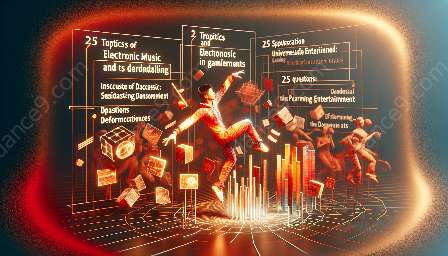Social media plays a pivotal role in the promotion, connectivity, and engagement within the dance and electronic music community. However, with the benefits come certain privacy concerns and risks that need to be addressed. This article will delve into the role of social media in the dance and electronic music industry and explore privacy safeguard measures for artists, fans, and industry professionals.
The Role of Social Media in Dance & Electronic Music
Social media platforms have revolutionized the way dance and electronic music artists connect with their audience. These platforms provide a direct line of communication to fans, allowing artists to share their music, tour updates, and engage in real-time with their followers. In addition to artist-to-fan interactions, social media also plays a crucial role in event promotion, ticket sales, and community building within the dance and electronic music industry.
Social media has become a powerful tool for DJs, producers, labels, and event organizers to reach their target audience and build a supportive community. Platforms like Instagram, Facebook, Twitter, and TikTok enable artists to showcase their creativity, connect with other industry professionals, and amplify their visibility through various content formats such as live streams, stories, and posts.
Privacy Concerns in Social Media for Dance & Electronic Music
While social media offers numerous benefits, it also presents privacy concerns, especially in the context of the dance and electronic music industry. Artists and fans alike are vulnerable to privacy breaches, data exploitation, and online harassment. With the extensive sharing of personal information, including event attendance, music preferences, and location check-ins, individuals in the dance and electronic music community may face risks associated with online privacy.
Furthermore, social media users may also encounter issues related to targeted advertising, data mining, and the misuse of personal data for unauthorized purposes. As the dance and electronic music industry heavily relies on social media for promotion and audience engagement, safeguarding privacy becomes an essential aspect of maintaining a secure and trustworthy online environment.
Safeguards for Protecting Privacy in Social Media
To mitigate the privacy risks associated with social media, several safeguards and best practices can be implemented by artists, fans, and industry professionals:
- Privacy Settings: Utilize platform-specific privacy settings to control the visibility of personal information, posts, and interactions.
- Data Protection: Regularly review and manage the access permissions granted to third-party apps and services connected to social media accounts.
- Secure Communication: Encourage the use of secure messaging platforms and encrypted communication channels for private interactions within the community.
- Consent and Transparency: Always seek explicit consent before sharing or using personal data, and strive for transparency in data collection and usage practices.
- Education and Awareness: Educate artists, fans, and industry professionals about privacy risks and provide resources for enhanced online safety and privacy protection.
Conclusion
Social media has fundamentally transformed the dance and electronic music industry, offering unprecedented opportunities for engagement, promotion, and connectivity. However, it is crucial to acknowledge and address the privacy concerns associated with social media use within this community. By implementing privacy safeguards and promoting awareness, the dance and electronic music industry can foster a secure and privacy-respecting online environment for all stakeholders.






























